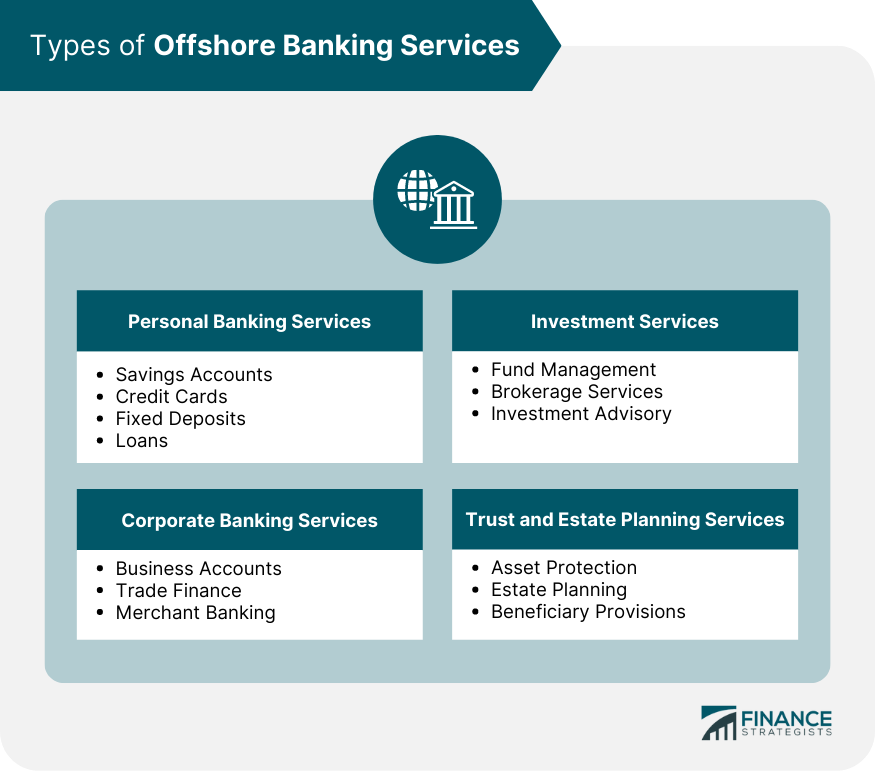Debunking Offshore Company Formations: How They Operate and What to Expect
Offshore company formations can seem complicated and enigmatic. Offshore Company Formations. These entities, usually established for tax benefits and privacy, operate under special lawful frameworks. Entrepreneurs may find themselves maneuvering with a labyrinth of policies and conformity needs. Recognizing the intricacies is vital for success. What are the actual advantages? What are the prospective challenges? A closer assessment discloses the subtleties that could affect decision-making significantly
Recognizing Offshore Firms: Kinds and meanings
Offshore companies are entities developed in a territory outside of an individual's or business's primary nation of home, commonly for functions connected to tax optimization, property defense, or regulatory benefits. These business can take different types, including minimal obligation companies (LLCs), global service companies (IBCs), and offshore trusts. Each kind serves certain features and interest various needs.
Limited responsibility companies give owners with security from individual obligation, while global company firms are prominent for their adaptability and very little reporting demands. Offshore trusts, on the various other hand, are utilized mostly for estate planning and possession protection.
The selection of jurisdiction significantly influences the firm's operations, as some places offer a lot more favorable lawful frameworks and personal privacy protections. Offshore Company Formations. Recognizing the differences in between these types is crucial for businesses and individuals taking into consideration offshore frameworks, as each option lugs various effects for governance and compliance
The Advantages of Establishing an Offshore Company
Developing an overseas firm can offer many advantages, particularly for those looking for to boost their financial approaches and protect their properties. One significant benefit is tax optimization; numerous territories use beneficial tax obligation prices or exceptions, permitting businesses to keep even more profits. Furthermore, offshore business can provide a layer of personal privacy, shielding the identities of proprietors and shareholders from public examination.
Another benefit is asset defense. By putting properties in an offshore entity, people can safeguard their riches from possible lawful insurance claims or political instability in their home nations. This structure also assists in worldwide organization procedures, allowing easier accessibility to varied clients and worldwide markets.
The establishment of an offshore firm can improve credibility and reputation, appealing to customers who value international organization techniques. Generally, these benefits make overseas business formations an eye-catching option for services and individuals going for financial development and safety.
Trick Considerations Prior To Forming an Offshore Entity
Prior to forming an offshore entity, a number of important factors should be analyzed. Legal compliance needs, tax ramifications and benefits, in addition to jurisdiction choice, play a significant function in the decision-making procedure. Understanding these considerations can assist individuals and services browse the complexities of offshore company formations effectively.

Legal Compliance Requirements
When considering the development of an offshore entity, understanding lawful conformity requirements is essential to assure adherence to both neighborhood and worldwide legislations. Potential entrepreneur should acquaint themselves with guidelines governing firm registration, reporting responsibilities, and functional standards in the chosen jurisdiction. This includes verifying the legal demands for investors and directors, in addition to making certain conformity with anti-money laundering (AML) and know-your-customer (KYC) laws. In addition, services should continue to be knowledgeable about any kind of licensing demands specific to their sector. Involving regional lawful and financial experts can provide important insights, guaranteeing that all essential documentation is prepared and submitted properly. Inevitably, detailed knowledge of legal compliance aids reduce threats and promotes a lasting overseas operation.
Tax Obligation Implications and Advantages
Various company owner take into consideration the tax implications and benefits of developing an overseas entity as an important variable in their decision-making process. Offshore companies can offer substantial tax obligation advantages, such as reduced company tax obligation rates, exception from specific regional taxes, and the capacity to postpone taxes on international revenue. These advantages can result in improved productivity and cash flow, making overseas structures appealing for international service procedures. In addition, the possibility for tax obligation treaties may additionally lessen tax obligation responsibilities. Nonetheless, it is essential for entrepreneur to understand the complexities included, consisting of compliance with both global and regional tax laws. Engaging with tax specialists is recommended to browse these intricacies properly and assure optimal tax planning techniques.
Jurisdiction Option Elements
What variables should one take into consideration when picking a territory for overseas company formation? Trick considerations consist of tax obligation performance, governing atmosphere, and political security. Territories with favorable tax obligation routines can significantly impact earnings. The regulatory landscape needs to supply adaptability and ease of conformity, permitting for reliable business operations. Political stability is crucial, as it assures the safety and security of properties and connection of procedures. Additionally, the online reputation of the territory can impact customer trust and service partnerships. Ease of access to financial solutions and the schedule of professional support solutions are additionally essential. Comprehending local legislations pertaining to privacy, coverage, and ownership requirements is crucial to determine that the offshore entity aligns with the service proprietor's objectives and legal commitments.
Possession The Refine of Establishing Up an Offshore Firm
Establishing an offshore company entails a collection of strategic actions that require cautious planning and compliance with global policies. A specific Get the facts should pick an appropriate jurisdiction that straightens with their organization goals and provides beneficial tax benefits. Complying with jurisdiction option, the following step is to choose an unique business name and prepare the required paperwork, including articles of incorporation and investor agreements.
As soon as the documentation is all set, it must be sent to the appropriate authorities in addition to the required costs. After authorization, the firm will get a certificate of incorporation, officially developing its legal existence. The individual should then open up a corporate checking account to promote financial deals.
Finally, preserving an offshore firm involves adhering to continuous conformity requirements, such as annual reporting and tax obligation obligations, which differ by territory. For that reason, comprehending each step is essential for a successful offshore company formation.
Regulative and lawful Structure for Offshore Firms
While developing an overseas business can use substantial advantages, it is important to maneuver via the complicated legal and governing framework that regulates such entities. Each territory has its very own set of legislations that dictate whatever from company formation to tax and compliance needs. These policies are created to protect against prohibited tasks, such as money laundering and tax obligation evasion, and frequently require comprehensive paperwork and transparency.
Crucial element of this structure include the requirement of appointing regional directors, keeping a licensed office, and sticking to yearly coverage commitments. Furthermore, several jurisdictions enforce particular licensing demands for sure business tasks. Understanding these lawful specifications is important for guaranteeing conformity and mitigating risks linked with fines or lawful conflicts. Subsequently, involving with legal experts that concentrate on offshore business can aid in steering via this elaborate landscape, inevitably promoting a effective and compliant offshore organization operation.
Typical False Impressions Concerning Offshore Companies
Lots of individuals hold mistaken beliefs regarding overseas business, typically relating them with tax evasion and illegal activities. Nonetheless, it is very important to acknowledge that these entities can operate legally within a framework designed for genuine service techniques. Clearing up the legal condition of offshore business can aid resolve these myths and promote a much more exact understanding of their objective.
Tax Obligation Evasion Misconceptions
In spite of the growing appeal of overseas business, misconceptions about their usage for tax obligation evasion continue. Many individuals incorrectly believe that establishing an offshore entity is solely a means to avoid tax obligations. However, offshore firms are often utilized for genuine functions, such as asset protection, global company growth, and investment diversification. The assumption that all overseas tasks correspond to illicit tax obligation evasion ignores the complexities of worldwide tax obligation laws and compliance requirements. Furthermore, the vast majority of overseas jurisdictions have implemented steps to fight tax evasion, advertising openness and details exchange. This mischaracterization can discourage legit businesses and investors from exploring the pop over here possible advantages of overseas company formations while perpetuating an adverse stigma surrounding these entities.
Lawful Condition Clarified
The lawful standing of offshore business is typically misconstrued, bring about a selection of misconceptions. Several believe these entities run in a lawful grey area, presuming they are dishonest or inherently unlawful. Actually, offshore companies are reputable businesses created under the regulations of particular jurisdictions, made for numerous factors, including asset defense and market expansion. Another common misunderstanding is that overseas business avert tax obligations completely; nevertheless, they are subject to the laws and tax obligation obligations of their home nations. In addition, some individuals think that overseas business can be easily exploited for cash laundering or prohibited activities. While abuse can occur, many territories impose stringent compliance and openness legislations to reduce such threats, making sure that offshore companies operate within lawful frameworks.

Handling and Operating Your Offshore Business Successfully
Successfully taking care of and running an overseas company calls for a tactical technique that balances compliance with regional policies and the search of business objectives. Effective offshore management includes recognizing the jurisdiction's tax laws, reporting needs, and operational regulations. Employing regional professionals, such as accounting professionals and lawful advisors, can give invaluable understandings into going across these complexities.
In addition, developing clear interaction channels and operational methods is essential for preserving effectiveness. Making use of modern technology for project administration and collaboration can improve efficiency, while regular efficiency reviews assurance positioning with tactical purposes.
Preserving durable financial records is vital, as transparency promotes count on with stakeholders and complies with international requirements. Being versatile to adjustments in regulation or market problems permits offshore business to pivot properly, ensuring lasting sustainability and development. By adhering to these concepts, local business owner can maximize the advantages of their offshore endeavors while mitigating threats.
Regularly Asked Inquiries
Just how Much Does It Expense to Preserve an Offshore Company Every Year?
The expense to keep an overseas business yearly varies considerably, normally ranging from $1,000 to $5,000, relying on territory, solutions called for, and compliance obligations. It is important to consider added charges for particular needs.
Can I Open Up a Checking Account for My Offshore Company From Another Location?
Opening up a savings account for an overseas firm remotely is generally possible. Requirements may differ by territory, often demanding documents and confirmation procedures, which can make complex the remote application experience for individuals.
Are There Particular Nations Understood for Easier Offshore Company Formations?
Particular countries, such as Belize, Seychelles, and the British Virgin Islands, are renowned for their structured processes and positive laws concerning overseas company developments, attracting entrepreneurs looking for performance and confidentiality in business procedures.
What Types of Companies Are Finest Matched for Offshore Companies?
Specific businesses, such as shopping, working as a consultant, and investment firms, frequently take advantage of overseas companies look at this web-site as a result of tax obligation advantages, privacy, and regulatory flexibility - Offshore Company Formations. These entities normally prosper in territories that promote positive company settings
Exactly How Can I Make Sure Conformity With Regional Regulations When Operating Offshore?
To ensure compliance with local legislations when operating offshore, it is vital to engage legal specialists, perform complete research on jurisdiction guidelines, and keep clear monetary records, therefore minimizing threats connected with non-compliance.
